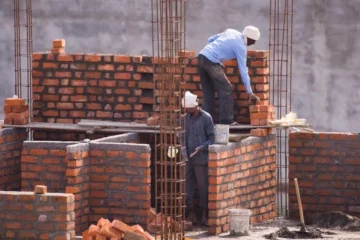
Contrary to the general perception that real estate has been going through a bad phase for the past few years, according to Knight Frank Global House Price Index Q2 2017, prices in the residential real estate market in India appreciated 10.5% in 12 months or 70% (absolute) in 5 years ending June 2017.
According to the report, “the growth in mainstream residential prices in India has landed it a place among top 10 international markets in the 12 months to June 2017.”
Considering the numbers in the report—10.5% in a year or 70% in 5 years (which means 11.2% compounded annually)—does real estate make sense as an investment?
Some experts hold a different view on returns. “The average returns on Indian residential real estate over the past 5 years have been 12-14% (absolute), but, of course, more granular returns are very city- and micro-market specific,” said Anuj Puri, chairman, Anarock Property Consultants.
Real estate is a heterogeneous product and returns depends on various aspects such as location, construction, economic scenario and so on. “Some cities and micro-markets in cities simply perform better because of factors like affordability, job creation and infrastructure deployment, especially in terms of connectivity,” said Puri. Some micro-markets in cities like Mumbai, Pune and Bangalore have yielded as much as 15-18% (absolute), or even more in the same period. But, at the same time, other micro-markets have under-performed and yielded as little as 1-2% (absolute), or even depreciated, added Puri.
Samantak Das, chief economist and national director-research, Knight Frank India, said the index mentioned in the report was based on the property registration data collected from registrar offices.
Also, returns are not the same across India. Residential prices in a few tier II cities increased more during the last year, compared to the low appreciation in metros and tier I cities. For instance, residential prices in Kochi appreciated by about 27% year-on-year last year. Similarly, prices in Lucknow and Kanpur appreciated 15-18% during the same period. However, “the same returns are not going to continue year on year,” said Das. “Price appreciation was mostly due to developments like metro construction and other infrastructure projects in these cities,” he added.
Should you invest?
Real estate has always been a favourite investment avenue, but low returns over the past few years has made it unattractive. “Some of the several policy actions and initiatives rolled out by the incumbent government—especially demonetisation and Real Estate (Regulation and Development) Act, 2016 (RERA)—resulted in a temporary slowdown in real estate activity and sentiment because they acted as major disruptors,” said Puri.
Picking the right property to invest will be the key to getting better returns. “Policy actions (demonetization and RERA) will have a positive mid- to long-term effect on the industry,” said Puri. “Investors can expect returns over the next 5 years to be significantly higher than in the previous 5 years,” he added.
However, financial advisers remain skeptical. “I don’t expect returns from real estate to even cross the rate of inflation in the next 2-3 years,” said Amit Kukreja, Sebi-registered financial adviser, and founder, WealthBeing Advisors. Even if someone has an investment horizon of 5-10 years, residential real estate is not advisable, he added.
“Real estate will probably give sedate returns of 5-8% CAGR (compounded annual growth rate) and not the 15-20% during 2004-09,” said Suresh Sadagopan, a Mumbai-based financial planner.
While real estate may not be sound investment, those looking for a house for end use can go ahead and buy if they find an appropriate property.
Source:-Livemint



